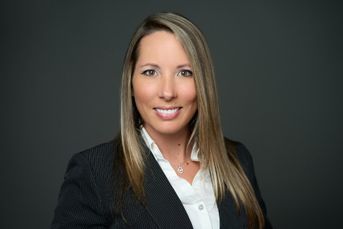Small broker-dealers are facing a dilemma

B-Ds must ask themselves whether they’re in the advice or the sales business
What business, precisely, is your company in?
That question and the responses it gets from top corporate executives have been studied for years by academics at leading business schools, who have found that many enterprises, even giants like Eastman Kodak, have paid a high price for mistakes in defining their business.
Kodak defined itself as being in the film business, not primarily in the image business. When photographic technology changed, Kodak failed to seize the lead in digital imagery, partly because the film business remained so profitable — until the company faded away.
The shrinkage now underway at smaller broker-dealers, as detailed last week by InvestmentNews senior columnist Bruce Kelly, reflects the pressures on that business model from the rising cost of technology and compliance, as well as tissue-thin interest rates. But the sector’s fundamental problem points to an inability, or unwillingness, to address that core B-school question: What business are they really in?
Essentially, they must ask themselves whether they are in the advice business or the sales business.
A QUESTION OF HISTORY
The entire retail securities business has been grappling with that question for years. Historically, the business model, regulatory structure and culture of broker-dealers, large and small, has been based on sales. It has been that way since the Great Depression, when the Glass-Steagall Act separated commercial and investment banking, and the Securities and Exchange Commission was created to regulate the latter. Into the 1960s and 1970s, broker-dealers — new firms, giant bank spin-offs (such as Morgan Stanley from J.P. Morgan & Co.) and small-town bank operations that became regional and local securities firms — underwrote corporate debt and equity and municipal securities, which they sold to affluent investors via their “customers’ men” (ever wonder why the industry is so male-centric?).
The growth of pension funds and other institutional investors led to the unfixing of commission rates in 1975, which spawned the discount brokerage, encouraging investors to buy, rather than be sold, securities. At the same time, rising inflation spurred the flight of cash into new money market funds, which led to accelerated growth in mutual fund investing. The next decades saw the expansion of defined-contribution plans, which thrust the responsibility for retirement saving and investing onto individuals.
As demand for financial and investment advice grew — alongside growth in online brokerage, leading to steadily declining commissions — larger broker-dealers acknowledged the shift by creating fee-based accounts, hastening the evolution of today’s hybrid sales/advice structure, in both independent and employee versions.
Today’s environment puts smaller broker-dealers in a bind. It is increasingly difficult for them to compete against broker-dealer and advisory giants that can afford the expensive infrastructure needed to offer a modern hybrid service. It’s also harder for them to sell the complex securities products that are the only ones left carrying significant commissions. At the same time, their current sales-oriented personnel may not be able to deliver the kind of planning-centric advice the market increasingly is demanding, which also is likely, in the short run at least, to be less lucrative than product sales.
What’s the solution? With the sales model in its sunset years, advice is clearly the future, as the growth of the RIA model and financial planning demonstrates. Many smaller firms, of course, acknowledge this inevitability, whether through efforts at hybridization or a decision to sell out to a larger firm.
But if advice is the business that broker-dealers really are in, and if they want to continue to remain viable, then transitioning to the advice business more emphatically — despite the near-term difficulties and pain — must become less a matter of “should” and more a matter of “how” and “when.”
Learn more about reprints and licensing for this article.







